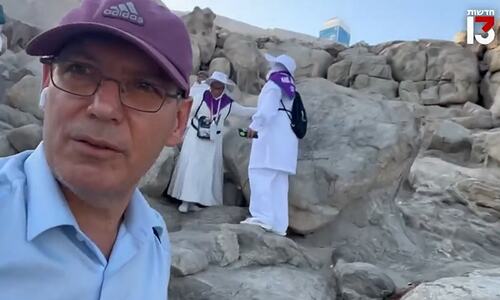A peace agreement between Saudi Arabia and Israel would lead to a resolution of the Israeli-Palestinian conflict, the Jewish state’s prime minister-designate Benjamin Netanyahu said in an interview with Al Arabiya, a Saudi daily, on Wednesday.
Netanyahu suggested that extending the progress made in the 2020 Abraham Accords — a peace initiative between Israel, the United Arab Emirates, and Bahrain — to other Arab states would be a more effective route to peace than engaging with Palestinian leaders directly, who he alleged, were not willing to recognise Israel.
“I think peace with Saudi Arabia will serve two purposes: It will be a quantum leap for an overall peace between Israel and the Arab world, it will change our region in ways that are unimaginable,” he said.
“And I think it will facilitate, ultimately, a Palestinian-Israeli peace. I believe in that. I intend to pursue it.”
Netanyahu pointed the blame at Palestinian leaders for the failure to achieve peace.
“The reason we’ve not had an Israeli-Palestinian peace is because the Palestinian… leadership for the last century has refused to do what is finally happening in the rest of the Arab world — and that is to recognise that the state of Israel is here to stay.”
But Benjamin Netanyahu added that achieving peace with Riyadh was “up to the leadership of Saudi Arabia”.
In 2002, Saudi Arabia spearheaded the Arab Peace Initiative, a proposal to achieve Arab-Israeli peace if Israel agreed to reverse all occupation of Arab territories. When asked about the initiative and if he was prepared to use it as a blueprint, Netanyahu avoided committing to the terms it laid out.
He said it was “an indication of a desire to end the conflict in all its terms, but I think 20 years later we need to have a fresh view”.
Saudi Arabia has been one of the biggest backers of the Palestinian cause and has repeatedly stated that it needed to see a Palestinian state before taking up normalisation with Israel.
Although Riyadh has not officially commented on the Abraham Accords, there have been signs of a thaw in relations in recent years.
In an Oct 2020 interview with Al Arabiya, the influential former Saudi Ambassador to the US Bandar bin Sultan said: “The Palestinian cause is a just cause, but its advocates are failures. And the Israeli cause is unjust, but its advocates have proven to be successful.”
Published in Dawn, December 16th, 2022












































